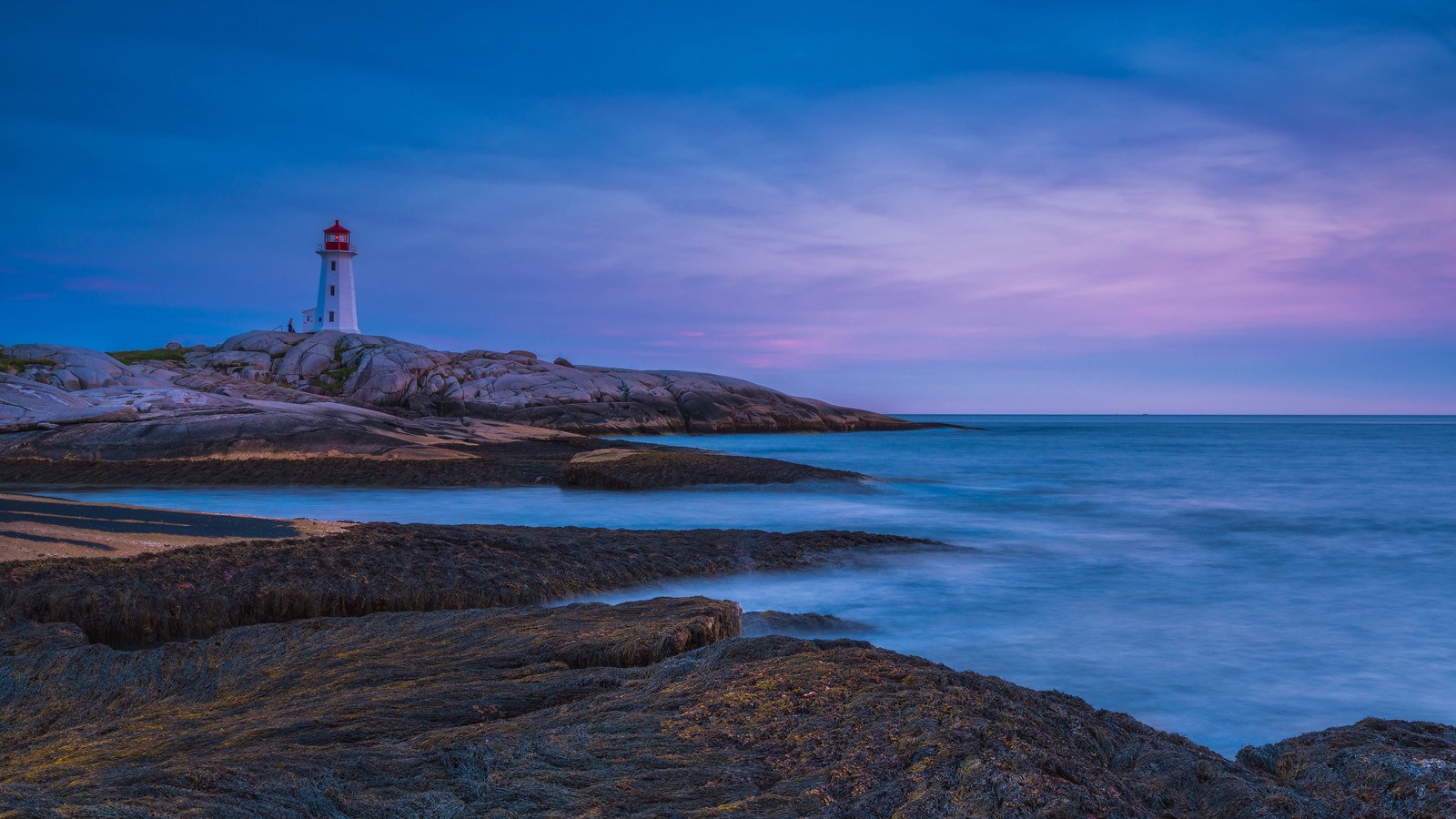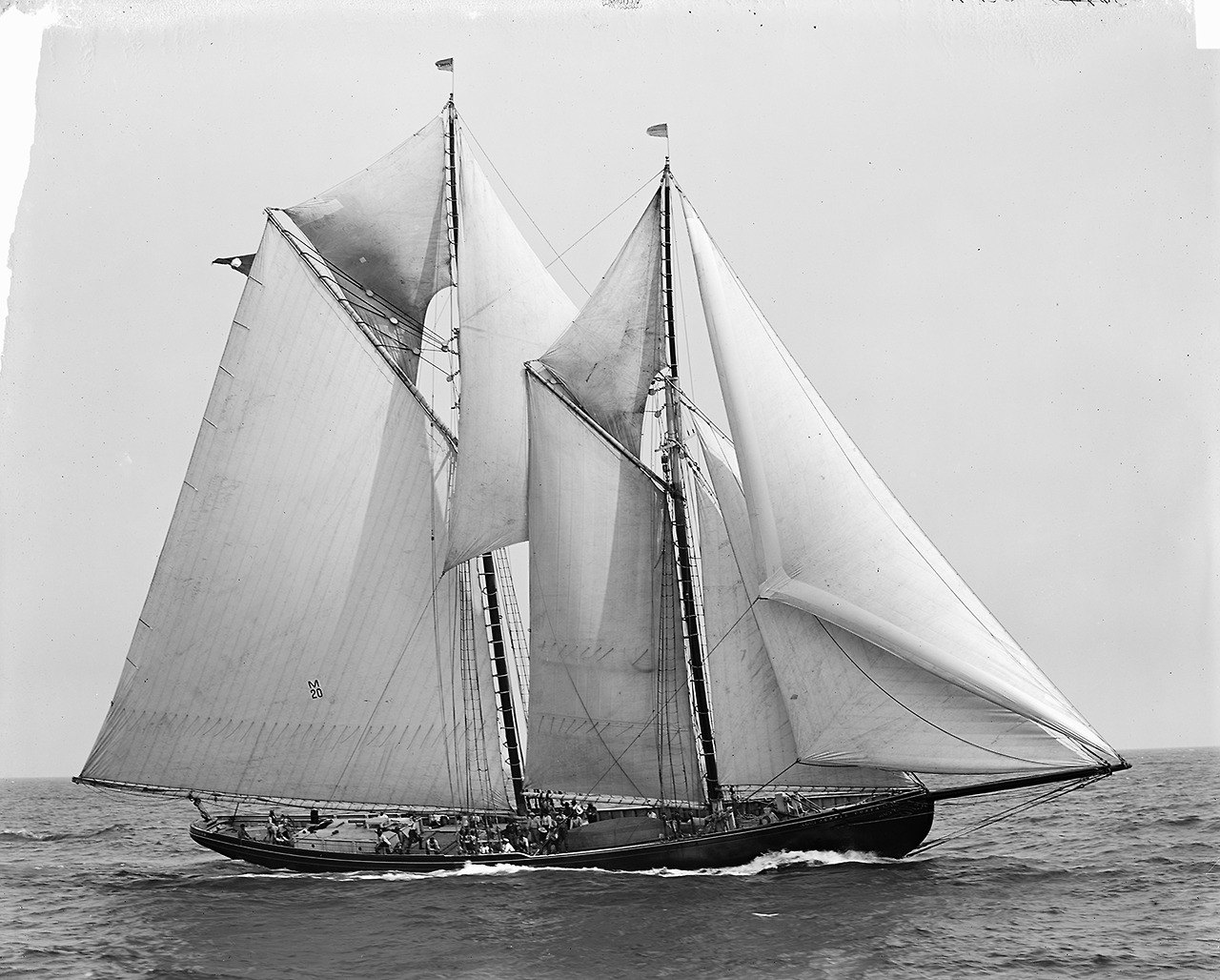Cape Sable in Nova Scotia has been the scene of many hundreds of shipwrecks over the centuries. According to one reliable chronicler of the days of sail, that number is close to 340. I remember the story of one such wreck that stands out for the extraordinary tale of suffering and survival it contains. We will tell the tale of the wreck of the schooner Cod Seeker, which went down on May 9, 1877.
The Cod Seeker was a two-masted fishing vessel built at Clyde River, Nova Scotia, in 1877; after being provisioned and fitted at Halifax, it embarked on its first cruise with a crew of 13 and a captain named Philip Brown. Codfish was her object; then as now, the cod industry was a key part of the economy of the area. (I should add that I myself worked at a codfish processing house on the New Bedford waterfront before going to college).

But the ship ran into rough seas near Baccaro Light and capsized a few days after leaving Halifax. In the confusion and chaos surrounding the disaster, the captain and another crewman jumped into a dory (a shallow-bottomed boat) to get away from the schooner, which by now had rolled over in the water amid turbulent seas. Since it was night, he could not see who else had been able to get off the wreck. The captain was able to guide the dory to Cape Sable Island, where he organized a rescue team to head back out to sea to hunt for survivors of the Cod Seeker.
The rescue mission picked up four sailors, but they were not aware that two crewmen (Samuel Atwood and James Smith) were actually trapped inside the forecastle of the capsized boat, surviving in a pocket of trapped air. The two men were at first amazed that the entire compartment had not flooded, but the air pocket managed to keep the water level from rising. There was some food and provisions in the forecastle, but not much; at most they would have enough for a few days.
The water level, however, gradually began to rise. At first it was only about 4 feet deep; but then the men noticed a gradual and steady increase in the level. But they were soon aware of something even more horrifying: the schooner was sinking. Dropping below the ocean surface, the terrified men felt the ship going down, down, and still further down. Eventually they felt the ship rattle as it hit the ocean floor; the masts hit first, and then the hull. The ship settled into new position, and the men could only hope that death might come quickly, perhaps through asphyxiation or perhaps through the crushing of the ship’s hull by water pressure.

But after a few hours something very strange began to happen: the ship slowly righted itself and slowly, slowly started to float to the surface. What had happened? Cod boats in those days carried large, heavy bins of salt to preserve the fish caught at sea. The weight of the salt had undoubtedly helped carry the Cod Seeker to the bottom; but when the salt dissolved in the flooded ship, it lost this weight, and was carried back to the surface.
Although Atwood and Smith had been saved from certain death, they were still back in their original predicament. The air in the compartment had nearly lost its oxygen, and the men were suffering from the symptoms of carbon monoxide poisoning. By this time they had been in the forecastle for about eighty hours, and the ship had drifted far in the ocean currents.

An American schooner from Maine named the Ohio was cruising near Seal Island (in the Gulf of Maine) when the lookout spotted a shape on the ocean surface that he took to be a whale. As they sailed closer, they realized it was a floating shipwreck. The Ohio’s captain launched two of his men to investigate; and the men climbed aboard the hull of the Cod Seeker to have a look at the situation. As they did, they began to hear a steady pounding coming from within the hull. With a shock they realized that there were living men entombed in the ship, and called for an axe to be brought immediately.
Yet more danger awaited. As the axes crashed through the hull of the ship to liberate the two men inside who were already near death, the pressurized air within burst out, and the water level began to rise again. The ship was sinking, and quickly. By breaking into the pocket of air in the ship, they had inevitably allowed the water to resume the flooding of the forecastle. It was now a race against time to make the hole big enough to get the two men out before the ship sank for good beneath the waves. They won the race against time. After being trapped for ninety hours in the hold of the Cod Seeker, both Atwood and Smith were rescued.
Amazingly, the Cod Seeker did not go to the bottom after the rescue. The ship was towed to Port Maitland in Nova Scotia, repaired, and sent back out to sea. The further adventures of the Cod Seeker are not known to history, but it is said that Atwood and Smith thereafter looked as if the stress of the ordeal had aged them many years.
Read More: Adrift In The Arctic: The Incredible Story Of Bruce Gordon
Goddamn, that sounds like a horror story.
I can’t imagine the endurance and courage it took to just not give up. Horror story? Tale of heroic endurance and not giving up, to me.
Great story!
Aside from what men do to Earth and each other, we’ve maybe never seen something so violent and hopeful as the ocean, because it is never vanquished.
To recover from any life-threatening crisis on the sea means we must master the crisis or possibly drown sooner than we had hoped. Clarity of intent comes rapidly to those who are in or under the water. Short of a miracle, the siege mentality envelops those who allow their dread to cannibalize rightmindedness and action. The ocean is quick to show us there aren’t a lot of other options but recovery and salvage sometimes, forcing strength and willpower into question. It’s locked into the annals of archaic randomness, this darkly exhilarating stuff of Hemingway legend.
The ocean, inexorably, can provide the mundane—a hangover cure, protein for the next meal—or permanently wipe you from the terrestrial record just the same. Writers since at least the time of the New Testament have identified the ocean as containing multitudes of ideal metaphor that cannot be simply digested and set aside, from a place where no one can ever explore all of its depths. To negotiate its ornery verisimilitude requires oxygen, periscopes and backup plans. It’ll eat your money. The ocean comes up repeatedly as a rhetorical device and spans the distance of countless novels that arch into metonymy, synecdoche, and irony. Turns out, we are quite grateful for its unresponsive vastness.
Moral of the story: never leave home without your axe
https://uploads.disquscdn.com/images/cbd18fd22ed4050488a1cd396e246c906d709872526292ea5806292c1fc92932.png
Always a good rule of thumb.
This reminds me of that scene from White Squall when Jeff Bridges is trying to save that kid in the sinking ship. That was a really powerful scene.
I emailed you
Got it, replied.
“the chef always survives”. Sounds like the team leader is a Steven Seagal fan
Well that had me spellbound, not to mention trying hard to intone forecastle correctly with my inner voice while reading.
ethereum went down 25% today
I’ve been looking at that – although I didn’t realise it was that much. Of course, so did other cryptos a bit. “Someone” also flash-crashed gold as well so it looks like there’s some major manipulation going on across the board right now – there always is but it’s usually confined to one sphere at a time.
This article reckons it’s because of a 4 chan hoax
https://qz.com/1014559/vitalik-buterin-dead-a-hoax-on-4chan-crashed-ethereums-price/
Buy the dip?
I haven’t bought anything yet, just getting back into the crypto-currency thing now and getting organized.
I didn’t hear about gold that’s interesting.
lol if 4chan did that, that is some next level trolling I must say..
trolling with a purpose I imagine, since the moment the report was disproved the price would be sure to spring back up again – although it hasn’t yet. I’m like you, getting organised, and checking out the territory. If I miss out so be it. The big opportunities may already be in the past, but who knows
https://www.armstrongeconomics.com/international-news/rule-of-law/is-spoofing-fun-running-market-manipulation/ It s just small time manipulation, if at all
the ethereum plank is small time manipulation but the gold dump is big time manipulation – and certainly not the fat finger mistake the MSM are suggesting. I’ve read the Armstrong article before and re. gold it’s a corrective to all the Jim Rickards type doom-mongering ‘buy gold’ before the SHTF speel which is arguably fear-mongering manipulation in the other direction but he’s downplaying the modern form of manipulation, which is through the trading of paper gold – comex futures etc. which is what creates the possibility of flash crashes like this, and which is most likely happening not as a result of individual trader efforts to reap massive profits but at the behest of the central banks. As everybody believes there is market manipulation on might wonder if the David Liew Deutsch Bank testimony is designed precisely to identify the manipulation of the market as something a) relatively small scale and b) as something that by calling DB and it’s traders to account can be seen as deviation from the norm and as something the system can get on top of to correct. The problem here is that we know that central banks are getting majorly involved in manipulating more and more assets. They engaged in bond buying programmes (QE) but also it seems they invest massively in stocks, regardless of fundamentals, either through proxies or it seems likely directly, all of which inflates the assets to signal a booming economy. What the CBs don’t want, in a low interest rate environment, though is people investing in a safe haven – they will do anything to keep the money circulating.
Moreover the Deutsche Bank affair does appear to implicate other big players and CBs as well despite what Armstrong has said
“Besides Deutsche Bank,[an incriminating document) also names such insider financial institutions as JP Morgan Chase, Goldman Sachs, the US Federal Reserve Bank, the Bank of International Settlements and the Bank of England as all being involved with the gold and silver price rigging schemes now admitted to by Deutsche Bank.
http://stevenmcollins.com/WordPress/deutsche-bank-admits-big-banks-rigged-gold-and-silver-markets/
No-one knows who was responsible for yesterday’s gold flash crash but we’re talking about a massive amount of gold dumped strategically – “1.8 million ounces of gold in just a minute, a level not reached even with the surprise election of U.S. President Donald Trump or Britain’s vote to leave the European Union.” That’s not a result of a fat finger, or an individual trader playing games. Moreover it looks like this move was timed very very carefully to create the maximum amount of damage to the gold price
http://investmentresearchdynamics.com/central-bank-intervention-slams-paper-gold/
would say it…..
SANK!?!?!?
hah? hah?
omg
Quintus, excellent article, I love your historical articles and tales of men of old and how they took care of business. This is fantastic.
As always, Ohio arrives to save the day. Yeah…we’re givers.
There are few fates I can think of that would be worse or more frightening than being trapped in a shipwreck. What necessity forces people to call up seems to be submerged normally, but the potential for incredible feats of endurance lurks. If only we could somehow control this!
Actually, this reminds me of a recent book I read from a Pearl Harbor survivor. Many guys were trapped in sunken and capsized ships and had to try and swim out. One wrong turn and they’d drown. Some made it. Others didn’t. The author fortunately wasn’t one of them, but he had another harrowing fate – he was onboard the deck of the Arizona, already burned to the point that his skin was falling off most of his body, and would be cooked alive unless he got off that ship. And Japanese Zeros were strafing him. It’s called All the Gallant Men. I think you’d like it a lot, Quintus: http://masculineepic.com/index.php/2017/03/04/all-the-gallant-men-review/
“All men are drawn to the sea…perlious though it may be”
My grandfather that I’ve met only once apparently had a love of the sea. He owned a handful of boats and went on a few sailing adventures. I might have to check it out one day, get to know the serenity and the chaos of the ocean.